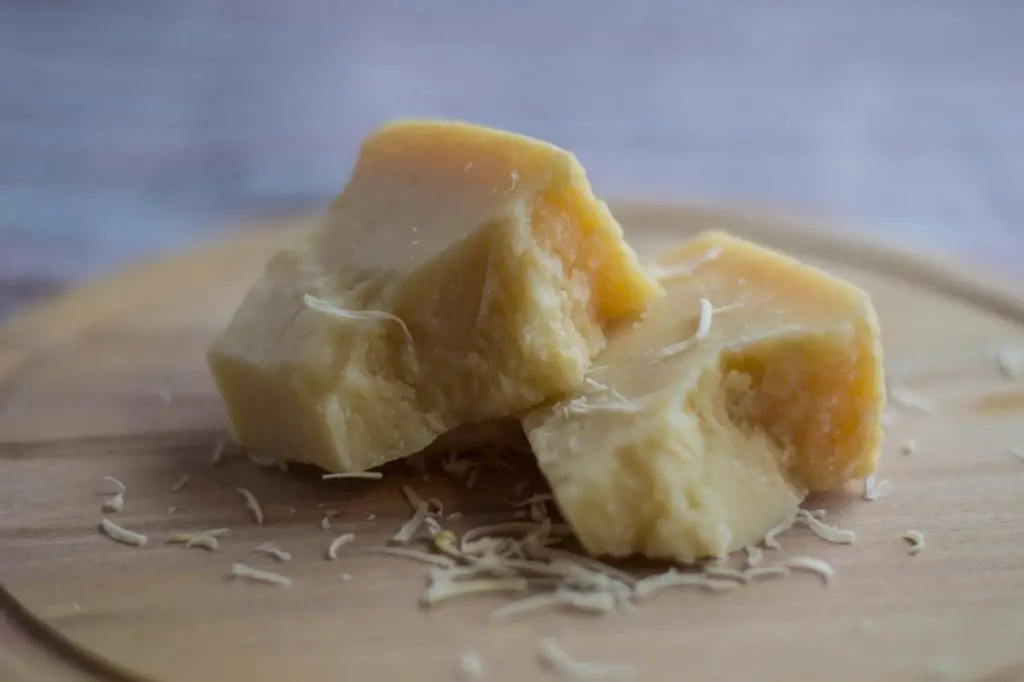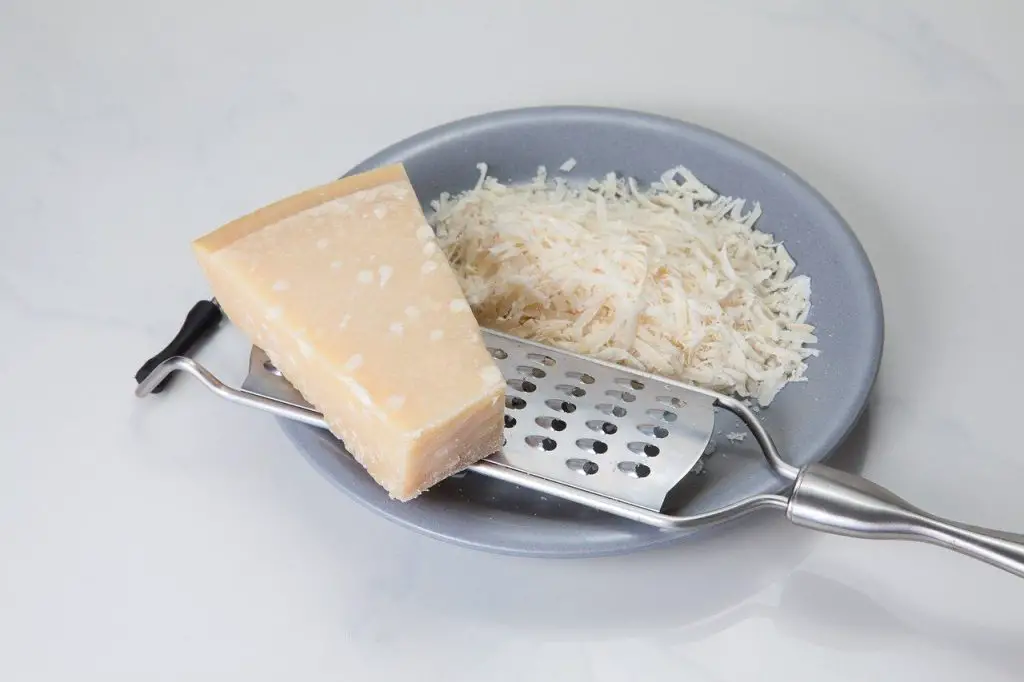Parmesan cheese is a great addition to any kitchen. It adds a depth of flavor to any recipe that calls for it, and the texture of a sauce can be improved hugely by its presence.
Parmesan is a relatively expensive cheese, and so not one that you want to have to keep going out and buying over and over again. So, without further ado, let’s have a look into what you can do to keep your Parmesan perfect.
But what we need to know is how to keep Parmesan cheese from molding! If you have had problems with this in the past, then this is the post for you. Keep reading for our best Parmesan tips.
How To Keep Parmesan Cheese From Molding?

If you remove even one of these conditions, mold is less likely to form – for example, if you keep your cheese refrigerated then it is less likely to form mold.
Parmesan cheese tends to mold much more slowly than other cheeses, because it contains far less moisture than many other types of cheese. That being said, given the right conditions, it will still succumb to a Penicillin spore or two!
- If you keep your cheese wrapped, so that the air cannot reach it, and also keep it cool and refrigerated, it is far less likely to develop mold and need to be thrown away.
- Keeping your cheese in a place with poor ventilation will also encourage more mold spores to grow, so if you can, ensure that your cheese is free from air sources that might encourage the mold spores.
- Place your cheese in a cool environment, such as a fridge or cold pantry shelf, so that it is less likely to harbor the kind of environment that is conducive to mold spores.
Cheese does have a habit of going moldy, and although Parmesan is not one of the more mold-prone types, it will definitely reward you if you keep it in the way that prevents mold as much as possible.
How To Keep Grated Parmesan From Molding?
Grated Parmesan will not last as long as a solid block of Parmesan. You can’t do anything about this, but you can make it last as long as you can (or, you can eat the whole bag in one sitting!)
Once you have used what you want from the package, transfer the remains to a ziplock bag. Squeeze all the air out of the bag, and store it in the fridge for up to a fortnight (you should check on it during the storage period, just to make sure it isn’t sneakily molding in your absence!)
Vacuum packing your cheese can also help it resist mold growth. If you don’t fancy packing your cheese into one of those bags that you have to use a hoover to suck all the air out of, simply place it into a plastic bag and squeeze all the air out before you close it.
How Long Is Grated Parmesan Cheese Good For?
Parmesan cheese is a marvel. Not only will it keep for a ridiculously long time, but it won’t make your fridge stink, unlike some other cheeses (yes, Camembert, we’re talking about you!)
This cheese, because it is so hard, will last in your fridge for months. As long as you keep it wrapped up and the air away from it, you should be able to continue using it for a long time after you bought it.
Grated Parmesan, because it has been removed from the hard block and therefore has more surface area for the oxygen to reach, will go off quicker – but even this type will last a good week or two in the fridge.
How Long Is Grated Parmesan Cheese Good For After Opening?
In the case of this hard cheese, the most issues that you may have with it is the fact that it may mold, or harden even more, if it is exposed to the air.
As long as you keep it well wrapped up and in the fridge, your grated Parmesan will last you a good few lasagnas, pasta dishes and salads.
Unlike a lot of other cheeses, which develop those characteristic, unappetizing lines of mold, Parmesan is relatively unaffected. This is because it is dehydrated during its production, so it is not prone to the growth of bacteria.
Is Grated Parmesan Good After Expiration Date?

You can still eat grated Parmesan for up to a week after the expiration date, and you can even push it longer – but you didn’t hear that here! It is always advised to consume grated cheese, or opened cheese, within 7 days.
What To Do With Moldy Parmesan?
As gross as it sounds, you can still save parts of your Parmesan, even if it has started to show signs of mold. Mold grows slowly on this type of cheese, because it contains little moisture.
If you spot a small piece of mold on a small part of your Parmesan, you can simply cut it off and use the parts that aren’t affected – the cheese underneath the mold will be absolutely fine.
If your grated Parmesan starts to mold then, sadly, you will probably have to chuck the whole packet. Grated cheese, because of the larger surface area, will spread mold much more quickly than on a single piece of cheese.
Final Words
Parmesan is a wonderful thing, and is something that you should always have in your fridge as a stand by. But, if you don’t use it often then there is a chance that you may find it in a pile of mold the next time you want to use it!
Now you know that you can safely keep Parmesan for a long time, and even eat it after its use by date, you should be able to plan your meals so you can make the most of this “grate” cheese without having to waste any of it.
1 thought on “How To Keep Parmesan Cheese From Molding?”